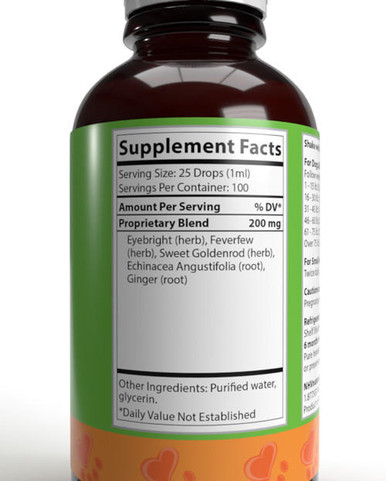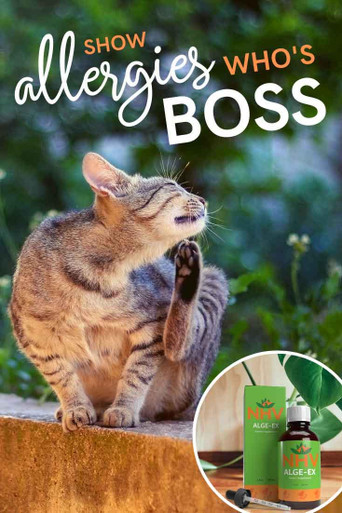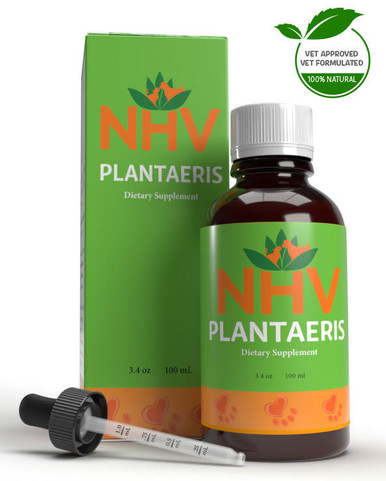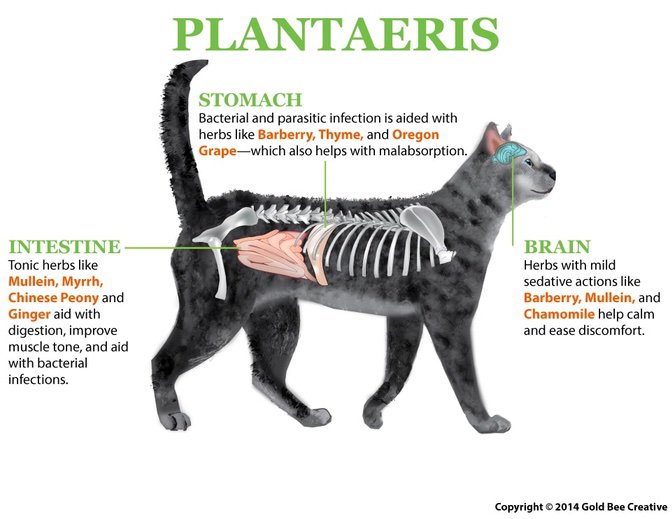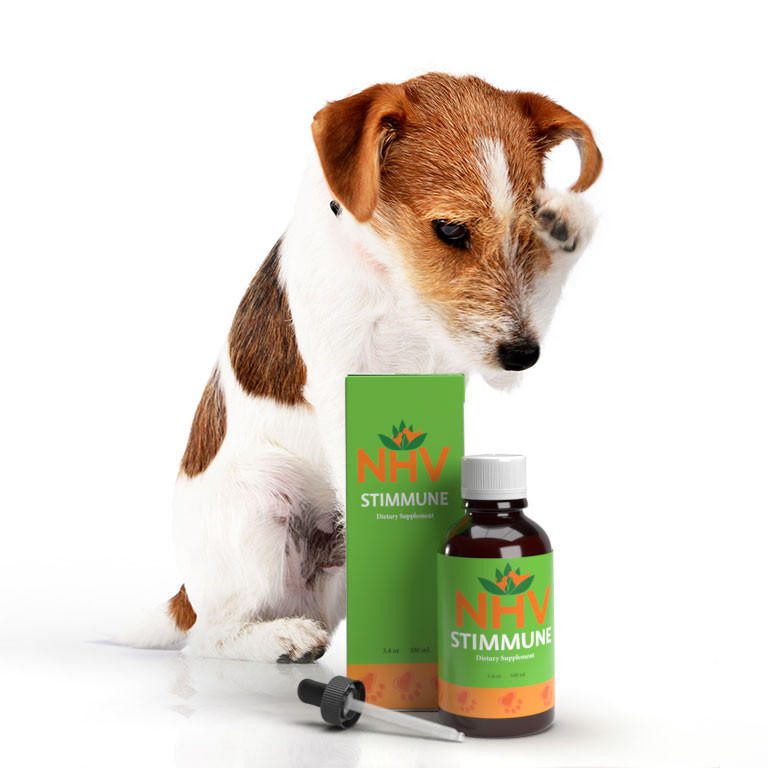
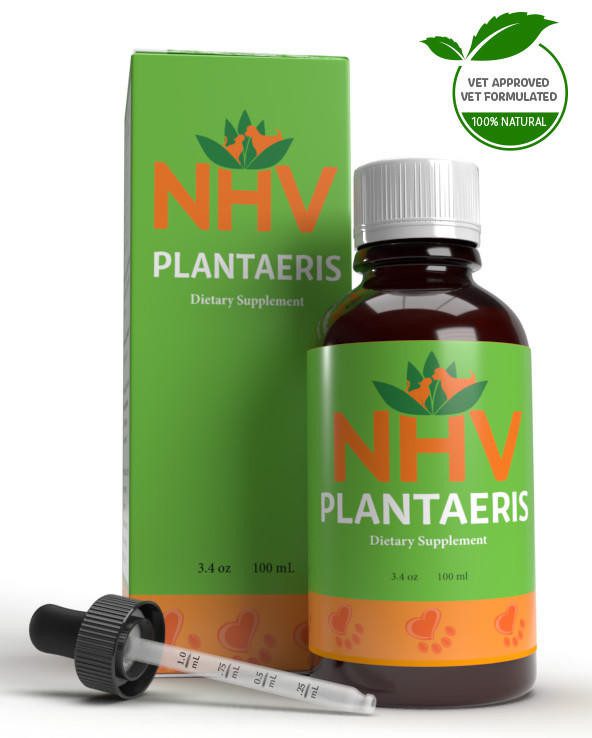
Natural relief to help your cat’s diarrhea and inflammatory bowel syndrome (IBS)


Achoo! Does your pet roll around? Itch excessively? Lick and chew at their skin? Your pup may be suffering from environmental and seasonal allergies. Any humans who suffer from allergies know it can be a tough time of the year to endure. Allergies can present themselves in a variety of ways and be difficult to diagnose- leaving many pet owners feeling frustrated about why their pup won’t stop clawing and biting at their body! Especially when they are causing wounds, redness, and hair loss. This is often uncomfortable for your precious pooch too. Here is one pet mom’s experience with how she overcame some of these challenges:
Maggie was suffering from environmental allergies and IBD. The allergies began when she was only 2 years old. At a young age, she was tested and diagnosed with environmental allergies to many things in her hometown of South Florida. She was put on immunotherapy allergy injections and other prescribed medications, which stabilized her condition until she was about 4.

After she was switched to a new allergy drug, she ran into some health scares. Here’s what Maggie’s mom Sharon went through over the course of managing Maggie’s condition:
Maggie unexpectedly got sick one day out of the blue. She had eaten a lot of grass, plants, and palm fronds that we were not aware of, then parts of a carpet in the house (which is what made us notice she was sick) and had to have emergency surgery to remove the 1 1/2 pounds of contents that were blocking her stomach and intestines. At that time, gastropexy was also done.
Since then, Maggie has had recurring issues with sickness, vomiting, at times diarrhea. She was also treated for helicobacter just in case that was the cause of her original sickness that caused her to get ill and eat the plants. To this day I am not sure what made Maggie get sick, just natural IBD or a reaction to the new drug Apoquel, which I question after further research on the drug.
Over the years, an internal medicine veterinarian was her go-to doctor. An endoscopy was performed after Maggie started experiencing frequent episodes of vomiting and pica, some episodes lasting hours. There have been numerous occasions where I had emergency vet visits to get injections to cease the vomiting, her go-to Cerenia.

I contacted NHV at the end of April 2019 when my 7 yr old chocolate lab/95 lbs, Maggie, had to be taken off a prescription corticosteroid, which was for her IBD. She is on numerous medications for her IBD but the corticosteroid is what seemed to help the most. However, it comes with side effects, which started to develop after one year. Maggie was diagnosed with calcinosis cutis, a skin condition. She developed a build-up of calcium deposits on her skin, raw spots from scratching and chewing, and lost hair in those areas. Since my concern on stopping the corticosteroid was all-around, with the anti-inflammatory drug helping her gastro issue, as well as her allergy issues, yet continuing it had new conditions that developed which warranted immediate attention.
Dr. Amanda suggested Yucca for its steroidal properties, Plantaeris for the GI tract, Stimmune for the immune system, AlgeEx for food/environmental allergies, Milk Thistle for healthy liver support due to Maggie’s numerous medications, and Ouch Away for her raw spots. Upon my second order, I picked up the All Clear Ointment for specific skin spots that had hair loss and calcium deposits, and for areas that Maggie was chewing on due to skin allergies.
Maggie has only been on herbal treatments for only 6 weeks, but I must say her skin condition has improved. I see hair regrowth and the calcinosis cutis deposits have greatly diminished. To be fair, she has discontinued the corticosteroid which would cease the calcinosis condition from continued development and assist with the condition eventually diminishing. She also has bi-weekly medicated baths to assist with skin healing. Our vet did say it could take 4-6 months for her skin and coat to return to normal after ceasing the corticosteroid, but at 6 weeks it is 90% better! Maggie has had a few episodes of IBD vomiting since ceasing the corticosteroid and starting the herbs but nothing that is above the level of IBD episodes Maggie has had while on the corticosteroid. It appears her scratching and chewing have also reduced.
Maggie before…
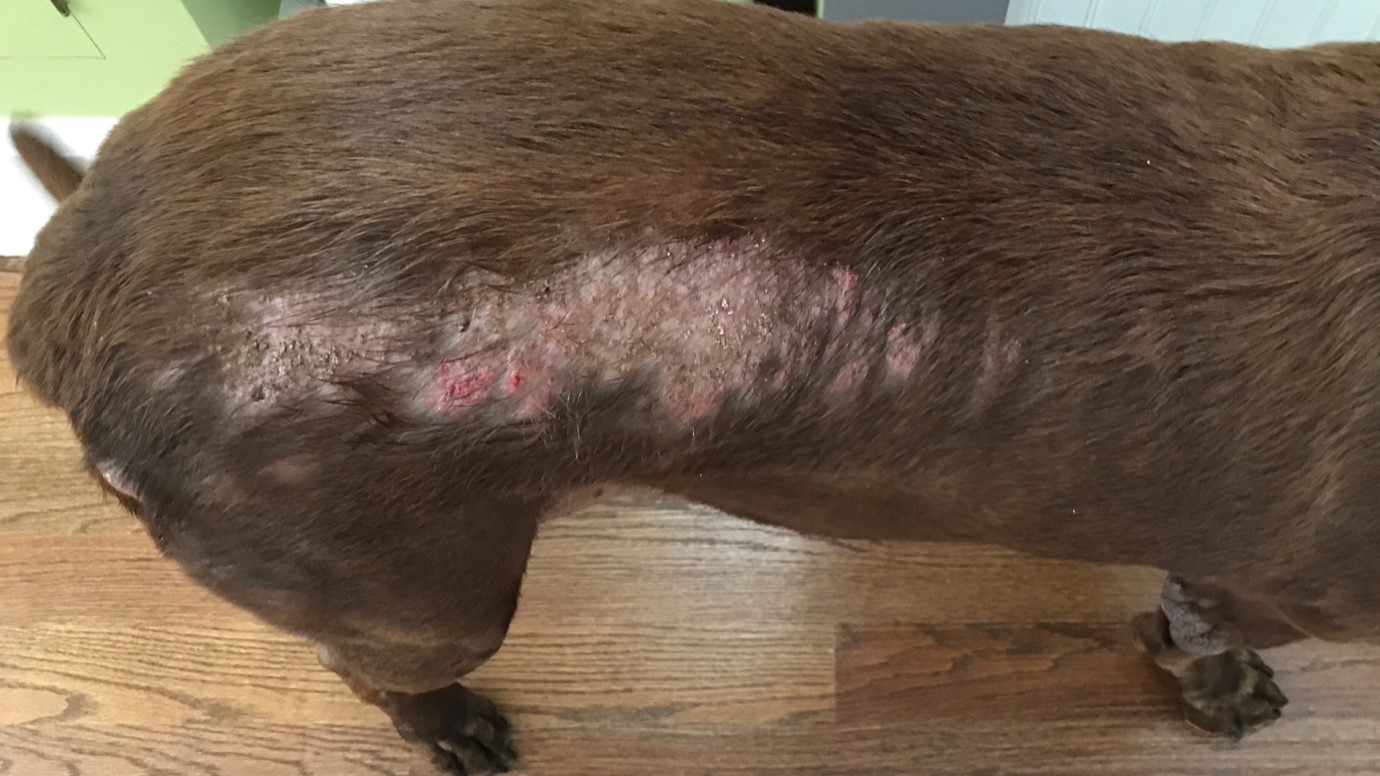
and Maggie after!…
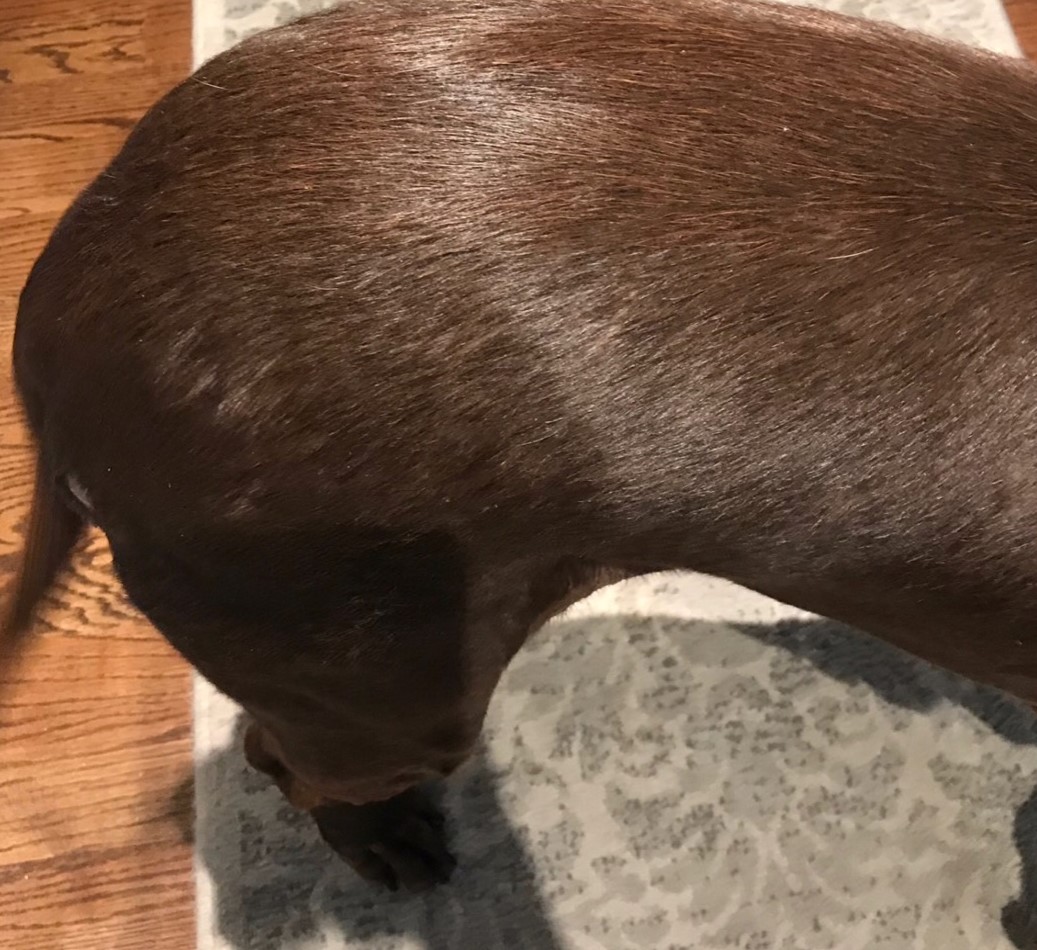
I have spent many hours researching canine IBD and have tried several medicinal treatment plans prescribed by the vet, spend thousands of dollars on vet and ER visits, prescription dog foods, spent many hours laying on the kitchen floor with my dog, trying to comfort her as she was going through hours and hours of vomiting episodes, etc. I will continue the NHV herbal options and plan suggested to give it a fair shot, as I do believe it is assisting with Maggie’s healing of calcinosis cutis, IBD issues, and environmental allergies. I will definitely report back and update Maggie’s medical status and how herbal remedies are assisting her issues. Thank you, Dr. Amanda, Johanna, and Melissa for taking the time to help Maggie and me with a plan. I am hopeful for continued success with my Maggie.

We are so happy to hear that sweet Maggie will shortly be celebrating her 8th birthday with her mom Sharon, in a lot more comfortable. She is on a special diet and her mom does everything she can to make her comfortable, and stay up to date with her veterinary visits, monitoring her symptoms and making adjustments along the way as needed. Thank you Sharon for allowing us to be a part of Maggie’s holistic journey.
5 Suprising Facts about Canine Allergies
Dogs can be allergic to pollen, or a variety of things they may come into contact with within the yard. The exposure can occur in a variety of ways- the most common sources are pollen, mold spores, mites, and animal dander.
Environmental allergies and food allergies can cause similar symptoms such as itchiness, hair loss, watery eyes, sneezing, and respiratory issues.
If you suspect allergies your vet will first need to rule out skin mites, fungal infections, and endocrine disease, such as hypothyroidism and Cushing’s – other diseases that present similar symptoms. It is important to get an accurate diagnosis.
They typically occur between the ages of 1 to 3. While all breeds are susceptible to allergies- certain breeds- Retrievers, Terriers, Boxers, Dalmatians, Bulldogs, Shepherds, Beagles, and Irish Setters- are more prone.
You can get a specially formulated diet to help manage your dog’s allergies.
NHV’s very own vet tech Johanna goes more into depth about seasonal allergies and how to manage them here.
Many pet owners will say the most frustrating problem a dog can have is allergies. Our NHV Pet Experts can help you navigate the complex world of canine allergies.

Stimmune
Stimmune - helps support a pets immune sytem

Stimmune - helps support a pets immune sytem
- item number
- ph1450fb
- weight
- 0.7
-
Description
- item number
- ph1450fb
- weight
- 0.7
-
Ingredients
-
Dosage
seasonal allergy support
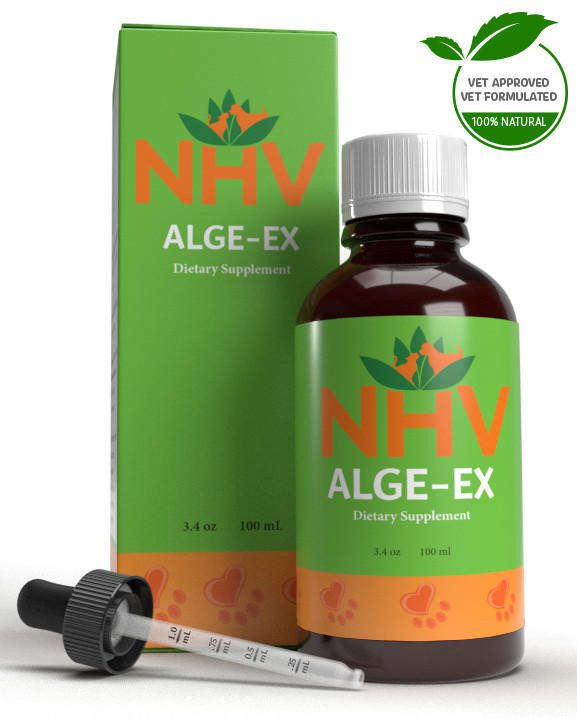
Alge-Ex for cats
Alge-Ex for cats
Herbal Support for Cats with Allergies
buy 2 and save $3
3 month supply for a small to medium size pet.
What is it?
Are you looking for natural holistic supplements for cats with allergies? NHV Alge-Ex for Cats can help relieve allergy symptoms in cats and proactively support hay fever and environmental and seasonal allergies in your little one.
How Does it Work?
- Supports histamine and immune response activity.
- Helps ease symptoms of airborne allergies like itchy eyes, face, and sneezing.
- May help soothe swollen or scabbed skin.
- May help with the discomfort cats with allergies may experience.
Why Should I Trust It?
Vet-formulated, 100% natural, and free of preservatives.

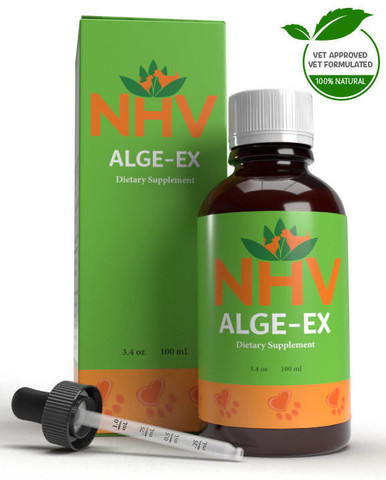
What is it?
Are you looking for natural holistic supplements for cats with allergies? NHV Alge-Ex for Cats can help relieve allergy symptoms in cats and proactively support hay fever and environmental and seasonal allergies in your little one.
How Does it Work?
- Supports histamine and immune response activity.
- Helps ease symptoms of airborne allergies like itchy eyes, face, and sneezing.
- May help soothe swollen or scabbed skin.
- May help with the discomfort cats with allergies may experience.
Why Should I Trust It?
Vet-formulated, 100% natural, and free of preservatives.

Scratching, sneezing and wheezing - it is never easy to see your beloved kitty suffer from allergic reactions. How can we make our furkiddos feel better?
Natural supplements like NHV’s Alge-Ex for Cats can proactively protect your cat from environmental and seasonal allergies and help relieve the symptoms alongside traditional medication.
All our supplements are 100% natural and free of preservatives, additives, flavorings, or artificial color. You can rest assured they are completely safe for your little one.
What are Environmental Allergies in Cats?
As the name suggests, environmental allergies are caused by foreign substances in our surroundings. This can be pollens, mold, grass, fleas, other pets, and dust mites. Allergic reactions can be triggered by ingesting these allergens or being in physical contact with them. Even though cat environmental allergies are usually seasonal, the symptoms can last all year.
Common Symptoms of Cats with Allergies
- Sneezing, hacking, and difficulty breathing
- Irritated, watery eyes
- Ear infections
- Throwing up and stomach upset
- Inflamed, sensitive paws:
- Excessive grooming and licking
- Irritated or dry skin
- Itchy skin
If you notice these symptoms, please visit a vet for a body check and allergy test.
How NHV Alge-Ex for Cats Supports Environmental Allergies in Cats
The blend of herbs in Alge-Ex contains powerful anti-inflammatory and antispasmodic properties that can help soothe the swelling and stomachache caused by allergies. Herbs like eyebright have been used internally for catarrh of the upper respiratory tract and can help with eye itchiness. Echinacea Angustifolia, additionally, has been used to help with sinusitis in dogs and cats, hay fever, asthma, and ear infections.
Natural Support for Cat Seasonal & Environmental Allergies
Alge-Ex for Cats and our other products are liquid-based and have a dropper, making them extremely easy to administer to pets. They can be given directly in the cheek pockets or mixed with food.
Please reach out if you have any questions or concerns about cats with allergies or anything else! We have a team of supportive Pet Experts who are always here to help you and your kitty!
Help protect your cat from allergies by ordering our Alge-Ex for Cats!
- item number
- PH7750c
- weight
- 0.7
- volume
- 3.4 fl. oz (100ml)
- life stages
- Adult, senior, kitten
- form
- liquid
- made in
- Canada
All NHV supplements are made with the finest quality organic or ethically harvested herbs.
We use non-GMO vegetable glycerin as our base. NHV products are full-spectrum extracts.
- Eyebright – Contains powerful anti-inflammatory properties that are beneficial for hay fever, seasonal allergies, pollen, and mold allergies in cats.
- Feverfew – Studies have shown that Feverfew inhibits the release of histamine and serotonin.
- Sweet Goldenrod – Has anti-inflammatory, anti-catarrhal, and antioxidant properties.
- Echinacea Angustifolia Helps the body fight infections and remove invading bacteria.
- Ginger – Has excellent antioxidant and anti-inflammatory properties.
Pet's Weight Dosage
To be taken twice daily. All NHV supplements are designed to be used together, and can, therefore, be given at once for convenience.
Select your pet's weight to determine the correct dose.
To be taken twice daily. Determine your pet’s weight and then use the easy chart below to determine the correct dose. This is the minimum dosage.
Pet's Weight Dosage
0 - 15 lb = 0.5 ml
16 - 30 lb = 1.0 ml
31 - 45 lb = 1.5 ml
46 - 60 lb = 2.0 ml
61 - 75 lb = 2.5 ml
Over 75 lb = 3.0 ml
How to Administer: Shake well before use. The easiest method is to use the dropper provided and place the drops into your pet’s food or favorite treat. You can also use the dropper and squirt directly into the pet’s mouth. Some pets can be finicky, if this occurs consider hiding the drops in foods most pet’s love such as fish, chicken, yogurt, or a favorite treat. If your pet only eats dry food then soak a few kibbles at feeding time.
For Best Results
Herbal dietary supplements are beneficial to the health and well-being of your pet and are safe for long-term use. Every pet responds to natural herbal supplements differently, therefore it is important to be consistent and administer the product daily. Supplements generally take two to four weeks to take effect, however this will vary from one animal to the next.
Product Storage
All NHV Natural Pet Products are pure herbal extracts and contain no artificial additives, preservatives, or coloring. Shelf life after opening is 6 months and must be refrigerated after opening.
Cautions and Contraindications
Do not use Alge-Ex in pregnant or nursing animals.
Speak to your vet before using our products. A second visit is recommended if your pet’s condition does not improve, or deteriorates after continued use of the supplements.
All information provided by NHV Natural Pet Products is for educational purposes only.
-
Description
Scratching, sneezing and wheezing - it is never easy to see your beloved kitty suffer from allergic reactions. How can we make our furkiddos feel better?
Natural supplements like NHV’s Alge-Ex for Cats can proactively protect your cat from environmental and seasonal allergies and help relieve the symptoms alongside traditional medication.
All our supplements are 100% natural and free of preservatives, additives, flavorings, or artificial color. You can rest assured they are completely safe for your little one.
What are Environmental Allergies in Cats?
As the name suggests, environmental allergies are caused by foreign substances in our surroundings. This can be pollens, mold, grass, fleas, other pets, and dust mites. Allergic reactions can be triggered by ingesting these allergens or being in physical contact with them. Even though cat environmental allergies are usually seasonal, the symptoms can last all year.
Common Symptoms of Cats with Allergies
- Sneezing, hacking, and difficulty breathing
- Irritated, watery eyes
- Ear infections
- Throwing up and stomach upset
- Inflamed, sensitive paws:
- Excessive grooming and licking
- Irritated or dry skin
- Itchy skin
If you notice these symptoms, please visit a vet for a body check and allergy test.
How NHV Alge-Ex for Cats Supports Environmental Allergies in Cats
The blend of herbs in Alge-Ex contains powerful anti-inflammatory and antispasmodic properties that can help soothe the swelling and stomachache caused by allergies. Herbs like eyebright have been used internally for catarrh of the upper respiratory tract and can help with eye itchiness. Echinacea Angustifolia, additionally, has been used to help with sinusitis in dogs and cats, hay fever, asthma, and ear infections.
Natural Support for Cat Seasonal & Environmental Allergies
Alge-Ex for Cats and our other products are liquid-based and have a dropper, making them extremely easy to administer to pets. They can be given directly in the cheek pockets or mixed with food.
Please reach out if you have any questions or concerns about cats with allergies or anything else! We have a team of supportive Pet Experts who are always here to help you and your kitty!
Help protect your cat from allergies by ordering our Alge-Ex for Cats!
- item number
- PH7750c
- weight
- 0.7
- volume
- 3.4 fl. oz (100ml)
- life stages
- Adult, senior, kitten
- form
- liquid
- made in
- Canada
-
Ingredients
All NHV supplements are made with the finest quality organic or ethically harvested herbs.
We use non-GMO vegetable glycerin as our base. NHV products are full-spectrum extracts.
- Eyebright – Contains powerful anti-inflammatory properties that are beneficial for hay fever, seasonal allergies, pollen, and mold allergies in cats.
- Feverfew – Studies have shown that Feverfew inhibits the release of histamine and serotonin.
- Sweet Goldenrod – Has anti-inflammatory, anti-catarrhal, and antioxidant properties.
- Echinacea Angustifolia Helps the body fight infections and remove invading bacteria.
- Ginger – Has excellent antioxidant and anti-inflammatory properties.
-
Dosage
Pet's Weight Dosage
To be taken twice daily. All NHV supplements are designed to be used together, and can, therefore, be given at once for convenience.
Select your pet's weight to determine the correct dose.
To be taken twice daily. Determine your pet’s weight and then use the easy chart below to determine the correct dose. This is the minimum dosage.
Pet's Weight Dosage
0 - 15 lb = 0.5 ml
16 - 30 lb = 1.0 ml
31 - 45 lb = 1.5 ml
46 - 60 lb = 2.0 ml
61 - 75 lb = 2.5 ml
Over 75 lb = 3.0 ml
How to Administer: Shake well before use. The easiest method is to use the dropper provided and place the drops into your pet’s food or favorite treat. You can also use the dropper and squirt directly into the pet’s mouth. Some pets can be finicky, if this occurs consider hiding the drops in foods most pet’s love such as fish, chicken, yogurt, or a favorite treat. If your pet only eats dry food then soak a few kibbles at feeding time.
For Best Results
Herbal dietary supplements are beneficial to the health and well-being of your pet and are safe for long-term use. Every pet responds to natural herbal supplements differently, therefore it is important to be consistent and administer the product daily. Supplements generally take two to four weeks to take effect, however this will vary from one animal to the next.Product Storage
All NHV Natural Pet Products are pure herbal extracts and contain no artificial additives, preservatives, or coloring. Shelf life after opening is 6 months and must be refrigerated after opening.Cautions and Contraindications
Do not use Alge-Ex in pregnant or nursing animals.Speak to your vet before using our products. A second visit is recommended if your pet’s condition does not improve, or deteriorates after continued use of the supplements.
All information provided by NHV Natural Pet Products is for educational purposes only.
Published: July 7, 2019

 USD
USD
 Canadian Dollars
Canadian Dollars

